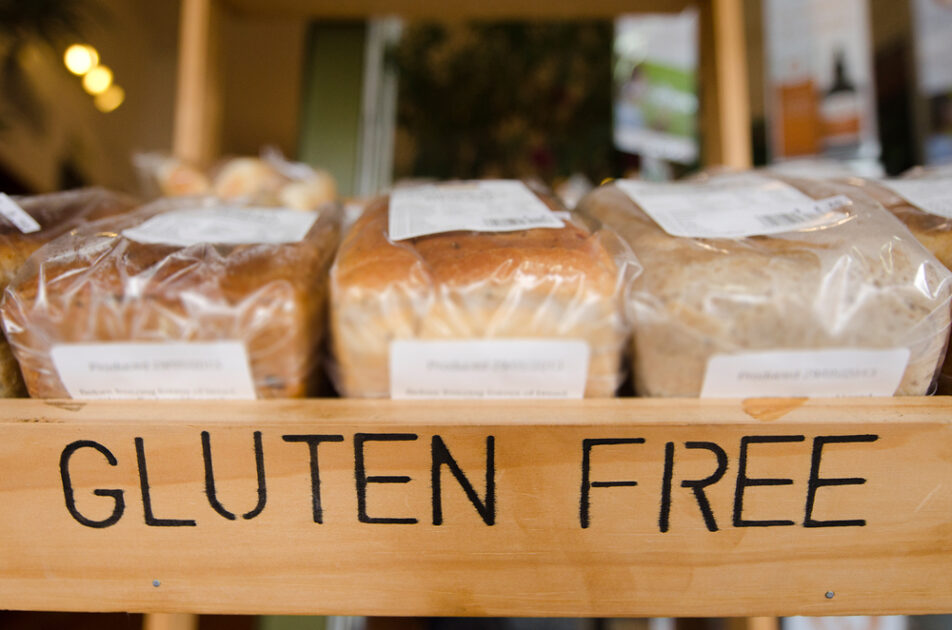Gluten free for me
What’s the story with all the GF products I see in the shop?

Gluten is a protein found in wheat, rye, oats and barley. Common food sources of gluten include the obvious foods such as pasta and the less obvious foods such as sauces and crisps (wheat is often used as a flavouring).
What is gluten sensitivity?
Gluten sensitivity is just what it says on the tin. A person who has gluten sensitivity has problems handling gluten. These problems can range from headaches to stomach aches to mood changes to weight issues.
How it differs from coeliac disease
This is a sticky one and there is much controversy over the difference between the two. Some doctors think that the difference is that people with coeliac disease have evidence of intestinal damage when they are biopsied and gluten sensitive people don’t. So, some docs would call a person a coeliac if they had high levels of gluten antibodies even with a normal biopsy, whereas other docs would say a clean biopsy means the person is neither coeliac nor gluten sensitive.
In general, the accepted definition seems to be that if you have antibodies in your blood there are gluten issues there, and many docs think it means a person is coeliac.
If you don’t have gluten antibodies in your blood (or in the controversial new stool test only available through private labs), then you may still have difficulty with gluten, but your body does not make antibodies to it and it is not damaging your stomach or intestines.
Many people discover their gluten sensitivity only by going on an elimination diet.
Prevalence of gluten intolerance in Ireland
Gluten sensitivity is only a newly recognised condition so there are no official figures for it. However, the incidence of coeliac disease in Ireland (particularly the west of Ireland) is very high, so many are of the opinion that the Irish population in general does not do well with gluten.
How to eat gluten free:
For info on how to eat gluten free, check out this article as well as: Coeliac Society of Ireland.






